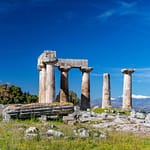TRAVEL AROUND
SWITZERLAND
Switzerland, a stunning gem located in the heart of Europe, is a dream destination for all kinds of travelers. Whether you’re a backpacker seeking adventure, a couple looking for a romantic getaway, a solo traveler exploring new horizons, a luxury vacationer, a digital nomad, or an outdoor enthusiast craving scenic landscapes, Switzerland has something special to offer everyone.
This country is known for its diverse experiences, from the exhilarating ski slopes of the Alps to charming mountain villages that look straight out of a fairytale. The country is also home to crystal-clear lakes, cosmopolitan cities like Zurich and Geneva, and picturesque towns nestled in the hills, making it the perfect mix of nature and urban life. Switzerland is also famous for its unparalleled quality of life, with well-maintained infrastructure, clean cities, and a strong focus on outdoor activities. Whether you’re hitting the slopes in the winter or hiking through lush meadows in the summer, there’s no shortage of ways to enjoy the great outdoors.
If you’re planning your first trip to Switzerland, there are a few things you should know to make the most of your visit. In this guide, we’ll dive into essential travel information, including the best destinations to explore, tips for navigating Switzerland’s unique cultural landscape, an overview of travel costs, and the must-have essentials for your trip. Whether you’re heading to the Swiss Alps, indulging in Swiss chocolate, or soaking in the charm of a lakeside town, this guide will help you plan and prepare for an unforgettable Swiss adventure.
Basic resources & travel tips
If you’re planning your first trip, check out our top travel tips to help you get started. We’ve also included some handy resources to make your visit easier and more enjoyable.
Top Destinations in Switzerland

Lucerne

Zermatt

Lauterbrunnen

Interlaken

Rhine Falls

Zurich
Smart Travel Tips & Costs for Visiting Switzerland
Switzerland is known for its breathtaking landscapes, top-notch infrastructure, and rich culture, but it’s also infamous for its high cost of living. While it’s an absolute dream destination, it’s no secret that it can also be pricey. Whether you’re planning a short trip or a longer stay, knowing how to navigate the costs and make the most of your visit will ensure you have a great experience without breaking the bank.
Best Time to Visit Switzerland
Switzerland shines in every season, but the best time to visit depends on your adventure:
- Summer (June to August): Dive into the great outdoors! Perfect for hiking, lake views, and soaking up the sunshine.
- Autumn (September to November): Golden leaves, crisp air, and fewer tourists. Ideal for scenic strolls and wine-tasting.
- Winter (December to February): If you’re a snow lover, the Alps transform into a winter wonderland, perfect for skiing and cozy vibes.
- Spring (March to May): The Alps begin to bloom, and while you can still ski in higher elevations, the valleys come alive with color.
For outdoor adventures, June to September is your golden window. If you dream of snow, December to February is the magic time to hit the slopes! For a quieter experience, try May or September.
Travel Tips
Plan Ahead for Popular Attractions
- Switzerland boasts many must-see spots, such as the Matterhorn, Lake Geneva, and the Jungfrau Region. For popular attractions like museums, scenic trains (like the Glacier Express), and mountain excursions, it’s wise to book tickets in advance to avoid long queues and to secure the best rates.
Public Transportation is Efficient
- Switzerland’s public transport system is world-renowned for its punctuality and ease of use. Trains, trams, buses, and boats connect cities and towns, making it simple to get around. The Swiss Travel Pass is a great way to enjoy unlimited travel across the country, offering not just transport, but free or discounted entry to various museums and attractions.
Embrace Swiss Cuisine
- Swiss food, heavily influenced by its German, French, and Italian neighbors, is a true delight. But dining out, particularly in tourist hotspots, can be expensive. You don’t have to break the bank to enjoy Swiss cuisine; opt for casual eateries or street food, like Swiss sausages or cheese, to get a taste of local flavors without the hefty price tag. If you’re cooking your own meals, local grocery stores like Migros and Coop offer reasonably priced ingredients.
Respect Swiss Etiquette
- The Swiss are known for their punctuality and environmental consciousness. Always be on time for trains or appointments, and make sure to follow local recycling and waste disposal rules. Cleanliness and respect for nature are key parts of Swiss culture, so be mindful during hikes or in urban spaces.
Prepare for Variable Weather
- The Swiss climate, particularly in the mountains, can change rapidly. Even if it’s sunny in the cities, a storm might be brewing in the Alps. Pack versatile clothing layers, and check the weather forecast before embarking on any outdoor activities.
Learn Basic Local Phrases
- While most people in Switzerland speak English, it’s always appreciated when travelers make an effort to speak the local language. In the German-speaking part, saying “Grüezi” (hello) and in the French-speaking part, “Bonjour” (hello) can make a great impression.
Travel Costs
Switzerland is renowned for its high standard of living, and this is reflected in travel costs. However, with a bit of savvy planning, you can still enjoy the country without overspending. Here’s what you can expect:
Accommodation
- Budget: Dorm rooms in hostels or budget guesthouses range from CHF 40 to CHF 80 per night. You’ll also find affordable Airbnb options in smaller towns or cities.
- Mid-Range: A 3-star hotel or private room at a guesthouse can cost CHF 100 to CHF 200 per night, depending on the location and time of year.
- Luxury: For luxury stays in famous locations like Zermatt or Lucerne, expect to pay CHF 250+ per night. Premium hotels and resorts in top destinations can go well beyond CHF 400.
Food and Dining
- Budget: Quick bites like a sandwich, salad, or a fast-food meal in a café usually cost CHF 10 to CHF 20. Swiss street food, like sausage or pretzels, can also be a great way to taste the local cuisine without the high price.
- Mid-Range: A hearty three-course meal at a mid-range restaurant typically costs CHF 30 to CHF 60 per person. Restaurants in popular cities like Zurich or Geneva may be at the higher end of this range.
- Luxury: Fine dining establishments, especially those with Michelin stars, can charge CHF 70 or more per person. A luxury dinner experience can also come with a premium Swiss wine list, which adds to the cost.
Transportation
- Swiss Travel Pass: The Swiss Travel Pass offers unlimited travel on trains, buses, and boats across Switzerland. Prices for the Swiss Travel Pass vary depending on the duration:
- 3 days: CHF 247
- 4 days: CHF 298
- 8 days: CHF 418
- Public Transport: Single tram or bus tickets in cities like Zurich or Geneva typically cost CHF 2.50 to CHF 4 for short rides. Trains between major cities range from CHF 20 to CHF 50, depending on the distance.
Attractions and Activities
- Skiing: Ski lift passes at resorts like Zermatt or St. Moritz typically cost between CHF 50 and CHF 100 per day. Rates depend on the resort, season, and lift access.
- Scenic Train Rides: A ride on Switzerland’s famous scenic trains, like the Glacier Express, can cost between CHF 100 to CHF 150, depending on the route and class of service.
- Museums and Sightseeing: Museum entrance fees are typically CHF 10 to CHF 20. Many museums offer free admission with the Swiss Travel Pass, making it a worthwhile investment if you’re visiting multiple sites.
Additional Costs
- SIM Cards: A prepaid Swiss SIM card with data typically costs around CHF 20 to CHF 40 for a basic plan, which is handy for navigation and staying connected.
- Souvenirs: Classic Swiss souvenirs like chocolate, watches, and Swiss army knives can be pricey. A box of Swiss chocolate will generally set you back CHF 10-15, while Swiss watches and jewelry can be much more expensive.
Smart Tips for Saving Money in Switzerland
- Cook Your Own Meals: If you’re on a budget, take advantage of Switzerland’s excellent grocery stores. Stock up on Swiss cheese, chocolate, and fresh ingredients to cook simple yet delicious meals. Many hostels and Airbnb rentals offer kitchens for guests.
- Explore Smaller Towns: Staying outside major tourist hubs like Zurich or Geneva can save you a lot on accommodation. Explore smaller towns like Lucerne or Interlaken for more affordable options with equally breathtaking views.
- Look for Deals and Discounts: Keep an eye out for last-minute deals or special offers on activities and transport. Many cities also offer free walking tours, which are a great way to learn about local culture without spending a penny.
- Take Advantage of Nature: Switzerland’s natural beauty is free to enjoy. Hiking, swimming in lakes, or just exploring scenic villages are great ways to experience the country without spending much.
Final Word: Travel Smart, Travel Wise
While Switzerland may come with a higher price tag, with a little planning and smart choices, it’s possible to enjoy everything this stunning country has to offer without breaking the bank.
Safety standards in Switzerland
Switzerland is one of the safest countries for travelers, with low crime rates and strict safety regulations. Here’s a quick rundown:
- General Safety: Very low crime rates; emergency numbers are 112 (general), 117 (police), 118 (fire), and 144 (medical).
- Road Safety: Strict traffic laws, well-maintained public transport, and safe roads for pedestrians and cyclists.
- Outdoor Safety: Hiking and skiing in the Alps are safe with proper preparation. Avalanche and flood risks exist but are well-managed.
- Health Safety: Excellent healthcare; tap water is safe to drink, and food hygiene is top-notch.
- Natural Disasters: Rare but possible (avalanches, floods). Always check weather conditions.
- Personal Safety: Low risk of pickpocketing; stay aware in busy tourist spots.
Switzerland is very secure, offering peace of mind for all types of travelers.



